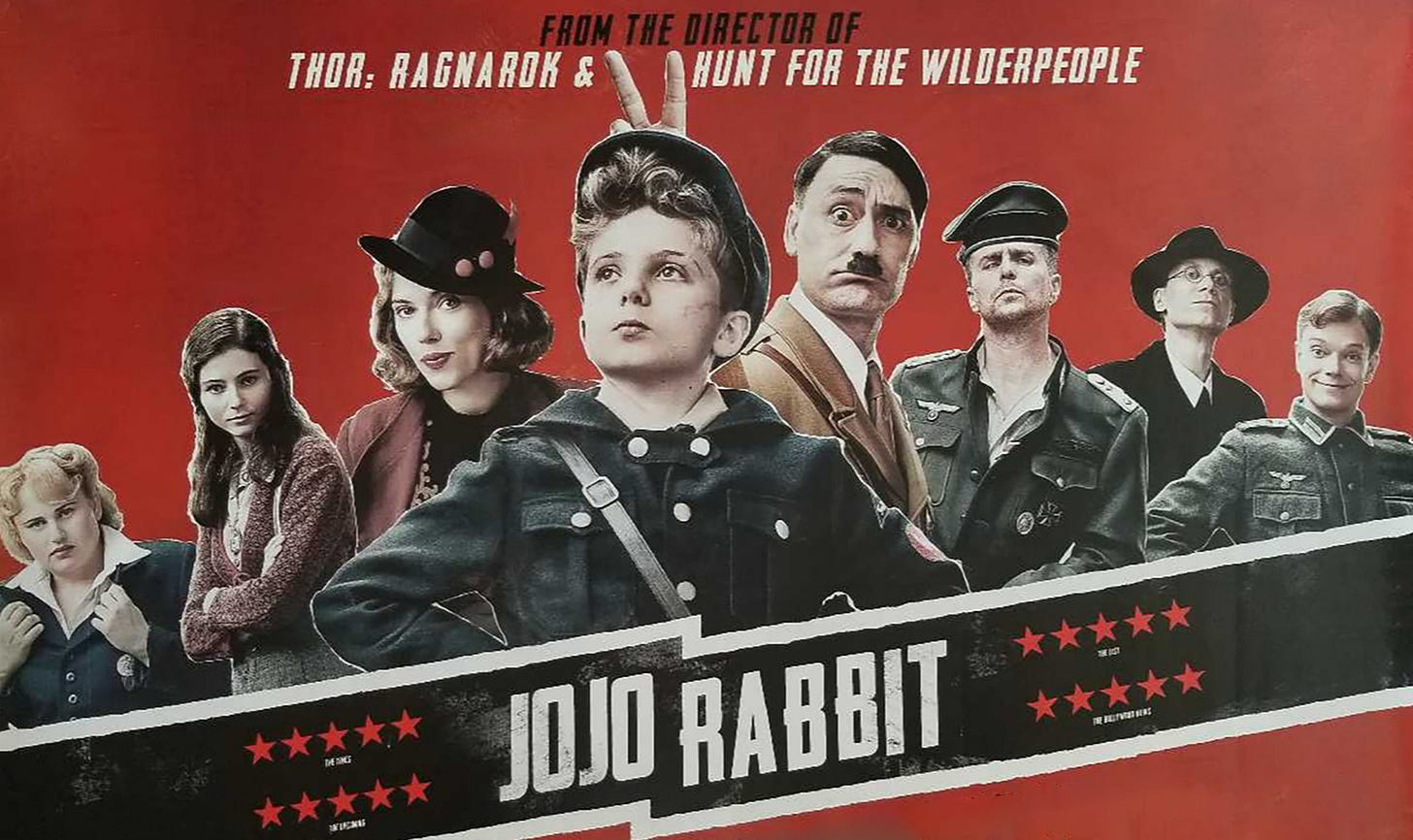Starring Roman Griffin Davis, Thomasin McKenzie, and Taika Waititi
Distributed by Fox Searchlight Pictures
Running time: 108 minutes
Rated PG-13 for mature thematic content, some disturbing images, violence, and language.
Among the many movie portrayals of a hero in times of war, few are as distinctive as Taika Waititi’s 2019 comedy/drama Jojo Rabbit. Set i…
Keep reading with a 7-day free trial
Subscribe to The Objective Standard to keep reading this post and get 7 days of free access to the full post archives.




